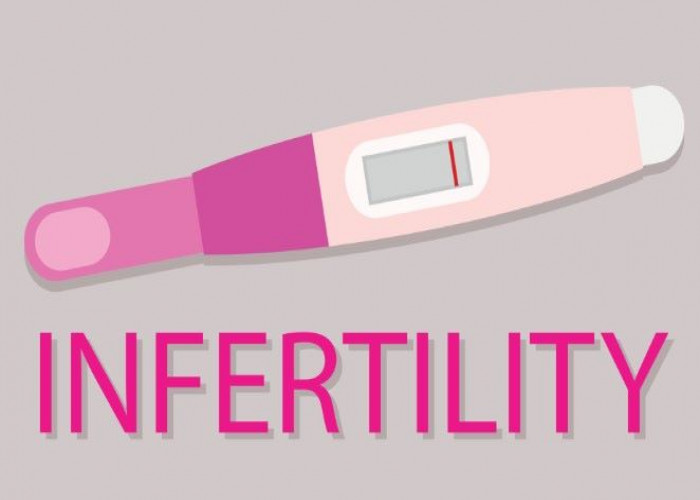 Welcome
Welcome
“May all be happy, may all be healed, may all be at peace and may no one ever suffer."
Infertility (Sterility)
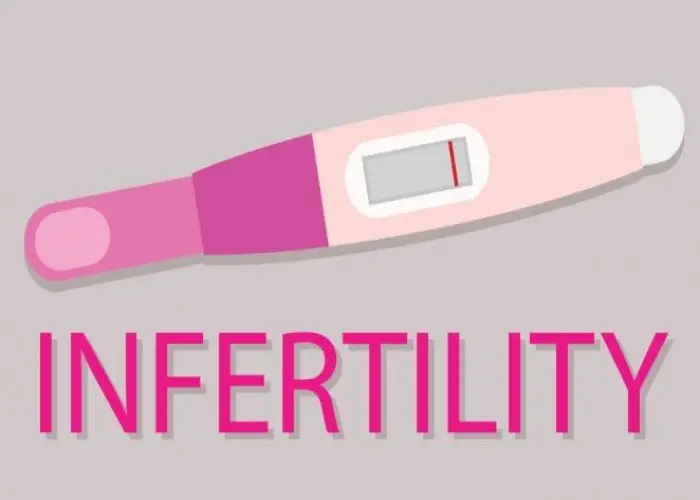
Infertility, also known as sterility, is a condition in which a couple is unable to conceive a child after trying for a certain period of time, usually one year. Infertility can affect both men and women and can be caused by a variety of factors.
In women, infertility can be caused by issues such as:
- Ovulation disorders
- Blocked fallopian tubes
- Uterine or cervical abnormalities
- Hormonal imbalances
- Age-related decline in fertility
In men, infertility can be caused by issues such as:
- Low sperm count or poor sperm motility
- Varicocele (enlarged veins in the scrotum)
- Blockage of the vas deferens
- Hormonal imbalances
Other factors that can contribute to infertility in both men and women include:
- Age
- Obesity
- Smoking
- Excessive alcohol consumption
- Stress
The treatment of infertility depends on the underlying cause, but may include:
- Medications to stimulate ovulation in women or improve sperm count and motility in men
- Surgery to correct structural issues, such as blocked fallopian tubes or varicoceles
- Intrauterine insemination (IUI), in which sperm is placed directly into the uterus
- In vitro fertilization (IVF), in which eggs are fertilized in a laboratory and then transferred to the uterus
- Use of a sperm or egg donor, or a surrogate
Infertility can be emotionally challenging for couples, and it is important to seek support from a healthcare provider, counselor, or support group if needed. With appropriate treatment, many couples are able to achieve a successful pregnancy and become parents.
Research Papers
Disease Signs and Symptoms
- Painful menstrual periods
- Others in the family with infertility problems
- Small testicles or swelling in the scrotum
- A history of testicular, prostate or sexual problems
- A low sperm count or other problems with sperm
- Undergone treatment for cancer
- Have had multiple miscarriages
- Have been diagnosed with endometriosis or pelvic inflammatory disease
- Have known fertility problems
- Irregular or absent menstruation periods
- Are over age 40
- Are age 35 or older and have been trying to conceive for six months or longer
- Most couples will eventually conceive, with or without treatment.
- Absent or irregular menstrual periods
- Infertility
Disease Causes
Infertility
All of the steps during ovulation and fertilization need to happen correctly in order to get pregnant. Sometimes the issues that cause infertility in couples are present at birth, and sometimes they develop later in life.
Infertility causes can affect one or both partners. Sometimes, no cause can be found.
Causes of male infertility
These may include:
- Abnormal sperm production or function due to undescended testicles, genetic defects, health problems such as diabetes, or infections such as chlamydia, gonorrhea, mumps or HIV. Enlarged veins in the testes (varicocele) also can affect the quality of sperm.
- Problems with the delivery of sperm due to sexual problems, such as premature ejaculation; certain genetic diseases, such as cystic fibrosis; structural problems, such as a blockage in the testicle; or damage or injury to the reproductive organs.
- Overexposure to certain environmental factors, such as pesticides and other chemicals, and radiation. Cigarette smoking, alcohol, marijuana, anabolic steroids, and taking medications to treat bacterial infections, high blood pressure and depression also can affect fertility. Frequent exposure to heat, such as in saunas or hot tubs, can raise body temperature and may affect sperm production.
- Damage related to cancer and its treatment, including radiation or chemotherapy. Treatment for cancer can impair sperm production, sometimes severely.
Causes of female infertility
Causes of female infertility may include:
- Ovulation disorders, which affect the release of eggs from the ovaries. These include hormonal disorders such as polycystic ovary syndrome. Hyperprolactinemia, a condition in which you have too much prolactin — the hormone that stimulates breast milk production — also may interfere with ovulation. Either too much thyroid hormone (hyperthyroidism) or too little (hypothyroidism) can affect the menstrual cycle or cause infertility. Other underlying causes may include too much exercise, eating disorders or tumors.
- Uterine or cervical abnormalities, including abnormalities with the cervix, polyps in the uterus or the shape of the uterus. Noncancerous (benign) tumors in the uterine wall (uterine fibroids) may cause infertility by blocking the fallopian tubes or stopping a fertilized egg from implanting in the uterus.
- Fallopian tube damage or blockage, often caused by inflammation of the fallopian tube (salpingitis). This can result from pelvic inflammatory disease, which is usually caused by a sexually transmitted infection, endometriosis or adhesions.
- Endometriosis, which occurs when endometrial tissue grows outside of the uterus, may affect the function of the ovaries, uterus and fallopian tubes.
- Primary ovarian insufficiency (early menopause), when the ovaries stop working and menstruation ends before age 40. Although the cause is often unknown, certain factors are associated with early menopause, including immune system diseases, certain genetic conditions such as Turner syndrome or carriers of Fragile X syndrome, and radiation or chemotherapy treatment.
- Pelvic adhesions, bands of scar tissue that bind organs that can form after pelvic infection, appendicitis, endometriosis or abdominal or pelvic surgery.
- Cancer and its treatment. Certain cancers — particularly reproductive cancers — often impair female fertility. Both radiation and chemotherapy may affect fertility.
Disease Prevents
Infertility
Some types of infertility aren't preventable. But several strategies may increase your chances of pregnancy.
Couples
Have regular intercourse several times around the time of ovulation for the highest pregnancy rate. Intercourse beginning at least five days before and until a day after ovulation improves your chances of getting pregnant. Ovulation usually occurs in the middle of the cycle — halfway between menstrual periods — for most women with menstrual cycles about 28 days apart.
Men
Although most types of infertility aren't preventable in men, these strategies may help:
- Avoid drug and tobacco use and drinking too much alcohol, which may contribute to male infertility.
- Avoid high temperatures found in hot tubs and hot baths, as they can temporarily affect sperm production and motility.
- Avoid exposure to industrial or environmental toxins, which can affect sperm production.
- Limit medications that may impact fertility, both prescription and nonprescription drugs. Talk with your doctor about any medications you take regularly, but don't stop taking prescription medications without medical advice.
- Exercise moderately. Regular exercise may improve sperm quality and increase the chances for achieving a pregnancy.
Women
For women, a number of strategies may increase the chances of becoming pregnant:
- Quit smoking. Tobacco has many negative effects on fertility, not to mention your general health and the health of a fetus. If you smoke and are considering pregnancy, quit now.
- Avoid alcohol and street drugs. These substances may impair your ability to conceive and have a healthy pregnancy. Don't drink alcohol or use recreational drugs, such as marijuana, if you're trying to get pregnant.
- Limit caffeine. Women trying to get pregnant may want to limit caffeine intake. Ask your doctor for guidance on the safe use of caffeine.
- Exercise moderately. Regular exercise is important, but exercising so intensely that your periods are infrequent or absent can affect fertility.
- Avoid weight extremes. Being overweight or underweight can affect your hormone production and cause infertility.
Disease Treatments
Infertility treatment depends on:
- What's causing the infertility
- How long you've been infertile
- Your age and your partner's age
- Personal preferences
Some causes of infertility can't be corrected.
In cases where spontaneous pregnancy doesn't happen, couples can often still achieve a pregnancy through use of assisted reproductive technology. Infertility treatment may involve significant financial, physical, psychological and time commitments.
Treatment for men
Men's treatment for general sexual problems or lack of healthy sperm may include:
- Changing lifestyle factors. Improving lifestyle and certain behaviors can improve chances for pregnancy, including discontinuing select medications, reducing or eliminating harmful substances, improving frequency and timing of intercourse, exercising regularly, and optimizing other factors that may otherwise impair fertility.
- Medications. Certain medications may improve sperm count and likelihood for achieving a successful pregnancy. These medicines may increase testicular function, including sperm production and quality.
- Surgery. For some conditions, surgery may be able to reverse a sperm blockage and restore fertility. In other cases, surgically repairing a varicocele may improve overall chances for pregnancy.
- Sperm retrieval. These techniques obtain sperm when ejaculation is a problem or when no sperm are present in the ejaculated fluid. They may also be used in cases in which assisted reproductive techniques are planned and sperm counts are low or otherwise abnormal.
Treatment for women
Some women need only one or two therapies to improve fertility. Other women may need several different types of treatment to achieve pregnancy.
- Stimulating ovulation with fertility drugs. Fertility drugs are the main treatment for women who are infertile due to ovulation disorders. These medications regulate or induce ovulation. Talk with your doctor about fertility drug options — including the benefits and risks of each type.
- Intrauterine insemination (IUI). During IUI, healthy sperm are placed directly in the uterus around the time the ovary releases one or more eggs to be fertilized. Depending on the reasons for infertility, the timing of IUI can be coordinated with your normal cycle or with fertility medications.
- Surgery to restore fertility. Uterine problems such as endometrial polyps, a uterine septum, intrauterine scar tissue and some fibroids can be treated with hysteroscopic surgery. Endometriosis, pelvic adhesions, and larger fibroids may require laparoscopic surgery or surgery with a larger incision of the abdomen.
Assisted reproductive technology
Assisted reproductive technology (ART) is any fertility treatment in which the egg and sperm are handled. There are several types of ART.
In vitro fertilization (IVF) is the most common ART technique. IVF involves stimulating and retrieving multiple mature eggs, fertilizing them with sperm in a dish in a lab, and implanting the embryos in the uterus several days after fertilization.
Other techniques are sometimes used in an IVF cycle, such as:
- Intracytoplasmic sperm injection (ICSI). A single healthy sperm is injected directly into a mature egg. ICSI is often used when there is poor semen quality or quantity, or if fertilization attempts during prior IVF cycles failed.
- Assisted hatching. This technique assists the implantation of the embryo into the lining of the uterus by opening the outer covering of the embryo (hatching).
- Donor eggs or sperm. Most ART is done using a couple's own eggs and sperm. However, if there are severe problems with either the eggs or the sperm, you may choose to use eggs, sperm or embryos from a known or anonymous donor.
- Gestational carrier. Women who don't have a functional uterus or for whom pregnancy poses a serious health risk might choose IVF using a gestational carrier. In this case, the couple's embryo is placed in the uterus of the carrier for pregnancy.
Complications of treatment
Complications of infertility treatment may include:
- Multiple pregnancy. The most common complication of infertility treatment is a multiple pregnancy — twins, triplets or more. Generally, the greater the number of fetuses, the higher the risk of premature labor and delivery, as well as problems during pregnancy such as gestational diabetes. Babies born prematurely are at increased risk of health and developmental problems. Talk to your doctor about any concerns you have about a multiple pregnancy before starting treatment.
- Ovarian hyperstimulation syndrome (OHSS). Fertility medications to induce ovulation can cause OHSS, particularly with ART, in which the ovaries become swollen and painful. Symptoms may include mild abdominal pain, bloating, and nausea that lasts about a week, or longer if you become pregnant. Rarely, a more severe form causes rapid weight gain and shortness of breath requiring emergency treatment.
- Bleeding or infection. As with any invasive procedure, there is a rare risk of bleeding or infection with assisted reproductive technology or reproductive surgery.
Disease Diagnoses
Disease Allopathic Generics
-
Testosterone Undecanoate
1 pill 3 times a day after meals.
-
Iron + Folic Acid + Vitamin B Complex + Vitamine C + Zinc Sulfate
25mg per day is great.
-
Nandrolone Phenylpropionate
1 ampoule should be given deep into the muscle.
Disease Ayurvedic Generics
Disease Homeopathic Generics
Disease yoga
Infertility (Sterility) and Learn More about Diseases

Sweating and body odor

Septic arthritis
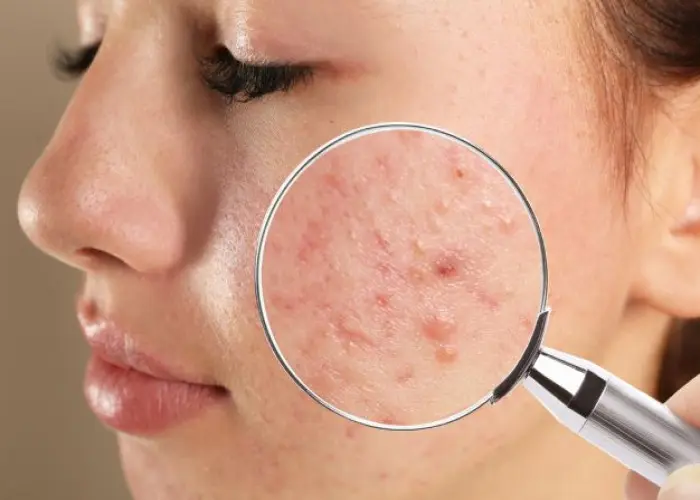
Acne

Swollen lymph nodes
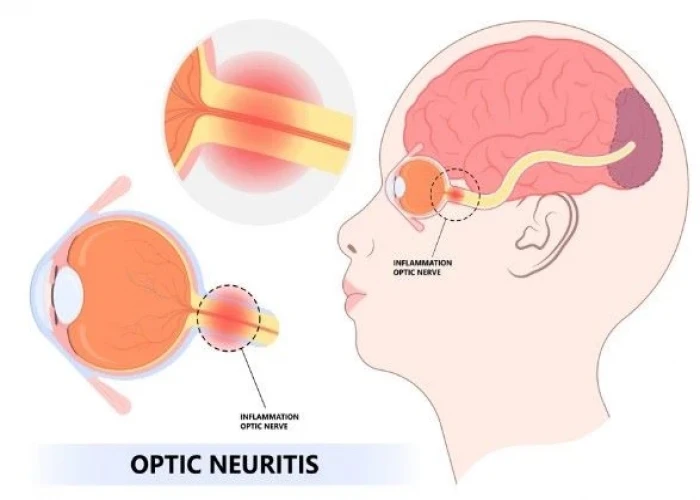
Optic neuritis

Mouth cancer

Broken foot
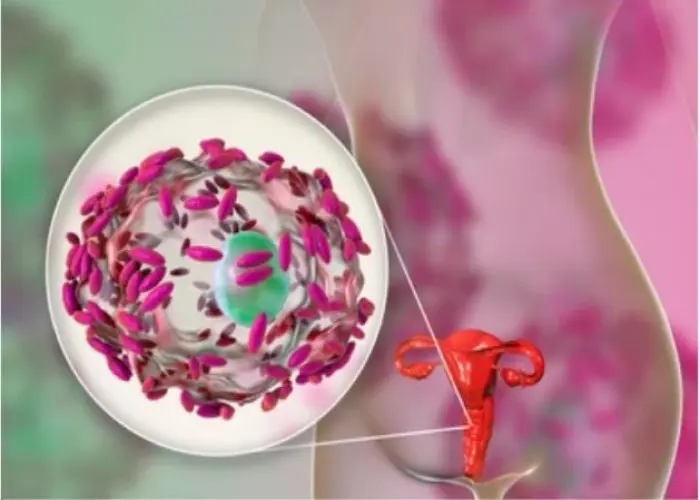
Bacterial vaginosis
infertility, sterility, বন্ধ্যাত্ব
To be happy, beautiful, healthy, wealthy, hale and long-lived stay with DM3S.
